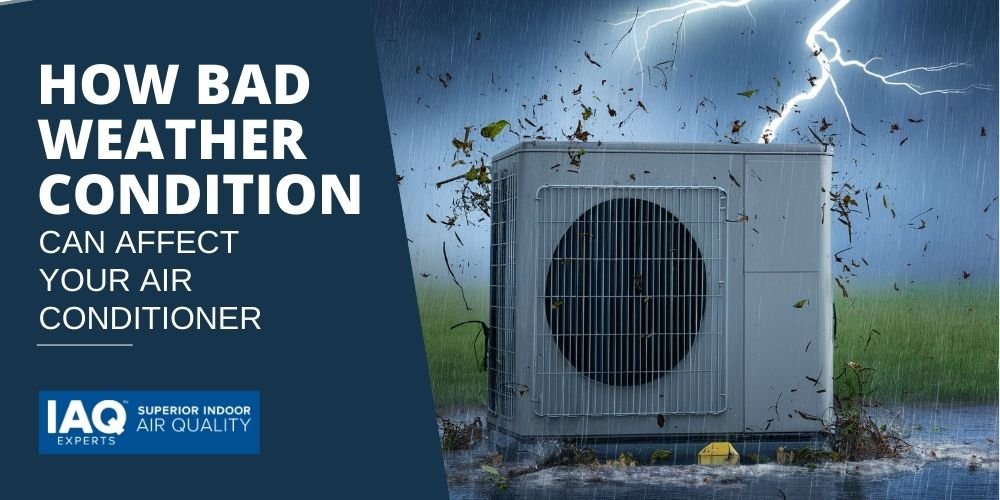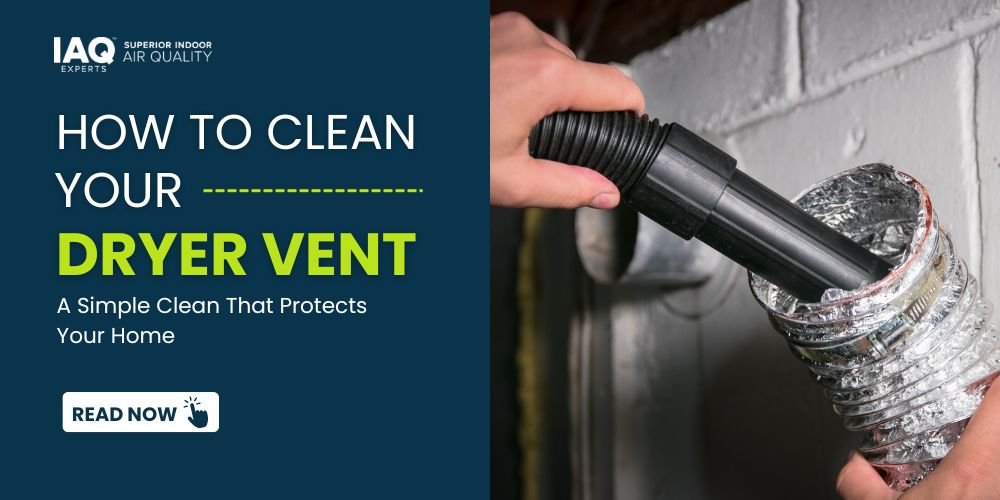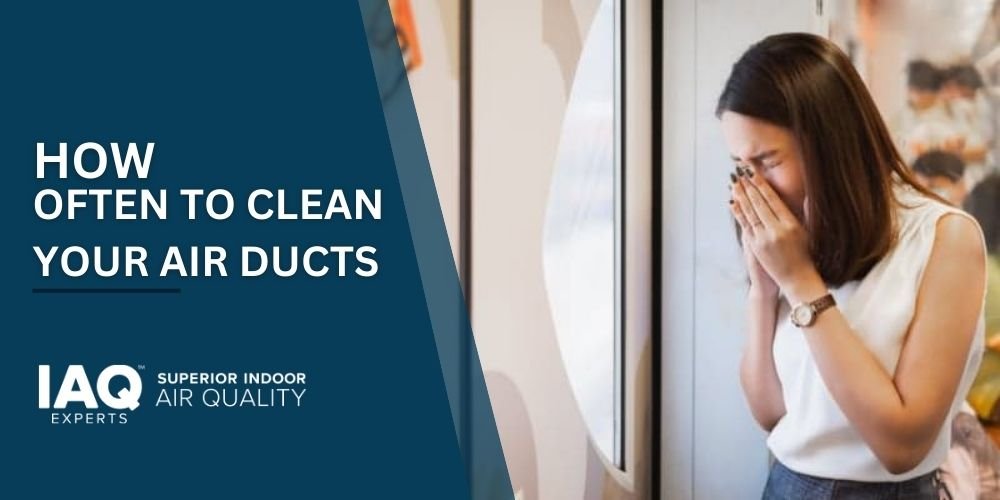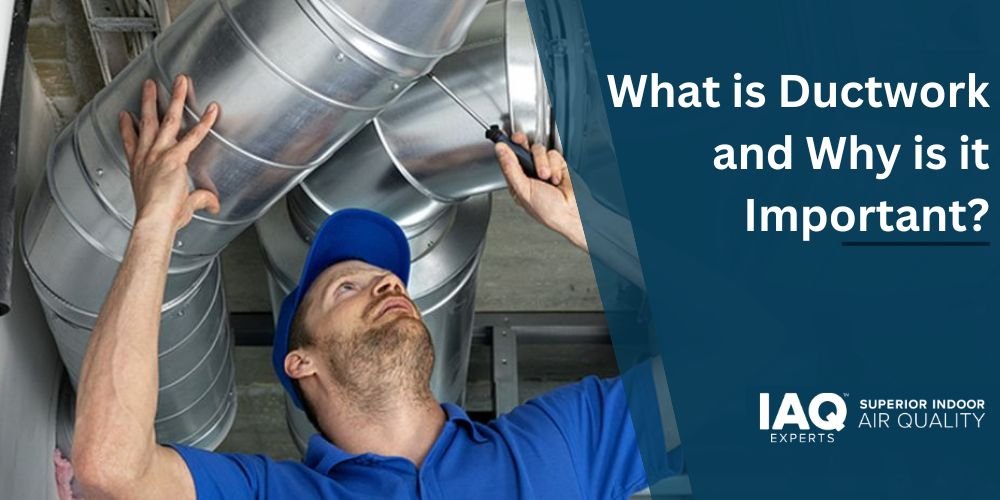Intense weather can significantly affect your air conditioning system. This blog looks at how weather, like extreme heat, heavy rain, hailstorms, and snow, might impact your AC unit. Knowing these impacts is very important to keep your HVAC system working well and lasting long. Also, we will give tips on how to prevent problems, show what signs of weather damage look like, and explain what actions you should take if your unit gets harmed.
Introduction
Air conditioners ensure comfort in living and working spaces, mainly when the weather scatters. They regulate the temperature indoors to guarantee a calm and pleasant environment, even if it’s scorching outside. But air conditioning systems also have problems when bad weather happens. Extreme conditions like sweltering days, heavy rain, hailstorms, and snow can affect how well your air conditioner unit works and lasts.
Types of Severe Weather and Their Effects Heatwaves
- Heavy Rain and Flooding can cause electrical harm and rust. If floodwaters get into the unit, this can lead to short circuits and corrosion. Long-lasting wetness can weaken metal parts and affect the system’s strength.
- Hailstorms: The unit’s outer casing can get dented by hail, while the fins on the coils may bend due to their delicate nature. It causes a decrease in heat transfer efficiency. Condensers might crack under severe hail, resulting in refrigerant leaks and lessened cooling performance.
- Snow and Ice: The outside parts of the cooling system can get blocked or harmed. Snow might cover the unit, making it hard for air to move around and possibly causing overheating problems in your system. When ice forms on these units, it can damage fan blades and other components that move.
Preventive Measures
- Regular Maintenance: Regular check-ups and servicing are crucial. Plan for yearly maintenance to confirm each part’s proper function, clean filters, and inspect refrigerant levels. Frequent service can help you find possible problems before they turn into significant issues, making your HVAC unit last longer.
- Protective Covers: You can use a cover that is resistant to weather. It will protect your unit from elements like rain, sun, wind, dust, or dirt. Choose the correct material for covers according to different weather conditions. To protect your outdoor unit from rain, hail, snow, and debris, you should get high-quality covers explicitly made for the climate in your area.
- Inspection and Repairs: Perform inspections before the season starts to locate weak points and do minor fixes that can avoid significant issues. Before extreme weather arrives, inspect your unit for signs of damage, tighten any loose parts, and ensure the system is ready to handle these conditions. Frequent inspections help save money on expensive repair jobs while enhancing efficiency.
Signs of Weather-Related Damage
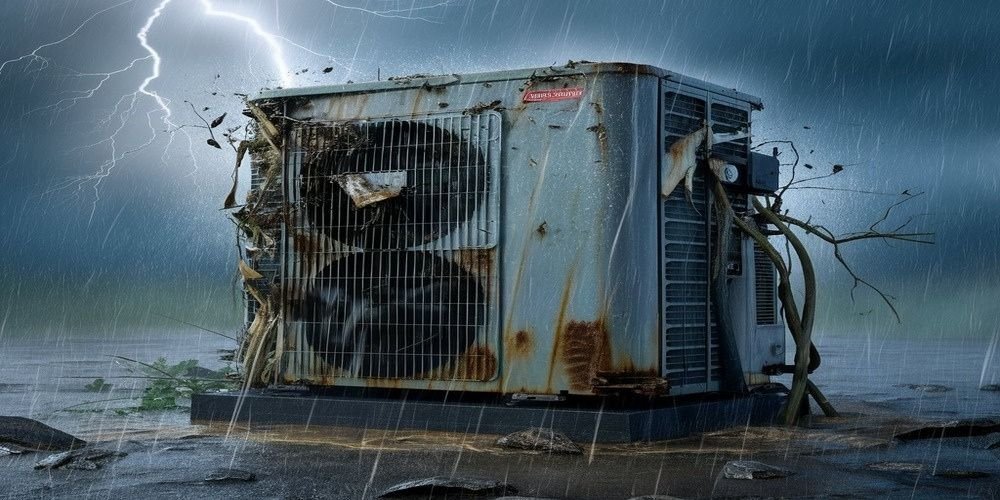
- Performance Issues: Different noises or reduced cooling power. Pay attention to any strange sounds like grinding, shaking, or hissing. It could mean internal problems if you hear them also, if the unit doesn’t cool your area as well as before it might be a sign of severe weather causing issues inside the system.
- Visible Damage: Cracks, dents, or rust on the unit. Look at the outside of your central air conditioning unit to see if you notice any apparent physical harm. It could be cracks or dents in its casing and bent or broken fins. Rust spots can also show up from exposure to moisture for too long and indicate potential corrosion problems.
- Water Damage: There may be leakage or corrosion within and outside the unit. Examine if there are indications of water accumulating around the unit or noticeable rust marks on the inside and outside parts. Water damage can result in electrical problems and more corrosion, affecting how well the unit works and its safety factor.
What to Do if Your Unit Is Damaged
- Immediate Actions: Power off the unit and evaluate visible harm. Switch off your air conditioner to prevent additional damage and check for any apparent problems, such as broken parts, leaks, or electrical issues. This will help you comprehend the damage’s severity before professional assistance arrives.
- Professional Inspection: Contact a licensed technician for an in-depth examination. An experienced HVAC expert can discover what’s wrong behind the scenes, fix or substitute broken parts, and confirm the system is safe. Regular inspections from professionals can prevent minor issues from turning into significant expenses.
- Insurance Claims: Comprehend your policy and make a claim if needed. Check your homeowner’s insurance policy to see if it includes coverage for weather-related harm to your heat and air conditioning unit.
Conclusion
Looking after your air conditioner during extreme weather is very important so it keeps working well and lasts for a long time. Regular maintenance and taking steps in advance can stop expensive harm and ensure that your HVAC system always performs its best. Set up check-up appointments, use covers to protect it, and do inspections before the season begins to keep your AC safe.
If you see any weather-caused harm indicators, handle them quickly to prevent more problems. For help from a professional, rely on IAQ Experts who can deliver complete maintenance and repair solutions if your AC is not cooling.
Continue being proactive about the health of your air conditioning by taking care of it so that you can enjoy continuous comfort no matter how the weather is outside.

